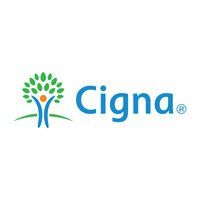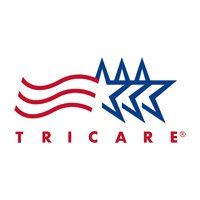The Truth About ADHD Testing: Why a Clinical Approach Works Best

Back-to-school season is an exciting time filled with fresh starts and new routines. But this time of year can also highlight challenges that might have flown under the radar during summer break. For many families, this is the time when questions about ADHD first come up. Maybe your child’s teacher notices that your child struggles to stay focused, has trouble completing assignments, or seems restless in class. Or perhaps you’ve observed at home that your child has a hard time keeping track of instructions, gets easily frustrated, or becomes overwhelmed by small changes.
These moments can leave parents wondering—is this just part of being a kid, or is it something more?
At the North Carolina Institute of Advanced NeuroHealth, we want parents to know they don’t have to figure this out alone. ADHD is one of the most common childhood mental health conditions, and while it comes with challenges, it is also highly treatable. The right evaluation and support can make a meaningful difference in your child’s daily life, both inside and outside of school.
Signs and Symptoms of ADHD
ADHD shows up differently in every child, but there are some common patterns parents and teachers tend to notice. Understanding these signs can help you recognise when it might be time to seek professional guidance.
Common symptoms include:
- Difficulty sustaining attention – Your child may drift off during lessons or struggle to finish homework.
- Forgetfulness and disorganization – Even simple routines like remembering to bring home folders or packing a backpack may feel like daily battles.
- Impulsivity – Interrupting, blurting out answers, or acting before thinking can happen often.
- Hyperactivity – Some children show this through constant movement or fidgeting, while others may just feel restless inside.
- Emotional regulation challenges – Big feelings can come on quickly, leading to frustration, meltdowns, or frequent conflict.
It’s important to note that ADHD doesn’t look the same in every child. Some kids are primarily inattentive, others are hyperactive and impulsive, and many experience a combination of both. Girls with ADHD, in particular, may be overlooked because they are less likely to display disruptive behaviors and more likely to appear “daydreamy” or withdrawn.
Common Misconceptions About ADHD
There are many myths about ADHD that can make parents second-guess whether their concerns are valid. Let’s address a few of the most common ones.
“ADHD just means being hyper.”
Not true. Some children with ADHD are very active, but others are mostly inattentive and quiet, which can make their struggles harder to see.
“It’s just bad parenting or lack of discipline.”
ADHD is a neurodevelopmental condition, not the result of parenting choices. Supportive parenting helps, but it doesn’t cause or cure ADHD.
“Kids will grow out of it.”
While some symptoms may lessen with age, ADHD is usually a lifelong condition. With the right tools and strategies, kids learn how to manage it successfully.
“Testing is the only way to diagnose ADHD.”
This is a big one. Many families believe their child needs hours of formal neuropsychological testing to get a diagnosis, but that’s not the case.
How ADHD is Diagnosed at Our Practice
Dr. Vinay Saranga and his team takes a careful and compassionate approach to ADHD evaluations. Our goal is to truly understand your child—not just check boxes on a form.
- A clinical diagnosis of ADHD does not require formal testing. Instead, we focus on building a complete picture of your child’s life and experiences. Here’s what that process looks like:
- A thorough clinical interview – Dr. Saranga talks with parents and the child to hear about strengths, challenges, and everyday experiences.
- Gathering historical information – We review developmental milestones, medical history, and family background.
- Parent input – Parents know their child best, so your perspective is central to the process.
- Direct observation – Watching how your child interacts and responds during the session gives us valuable insight.
- Symptom checklists – Both parents and teachers fill out structured forms, helping us see how symptoms appear across settings.
This approach allows us to create an accurate diagnosis and, more importantly, a plan to support your child’s unique needs.
Why Back-to-School Season Highlights ADHD
Transitions can be tough for kids with ADHD. The shift from summer freedom to the structure of a school schedule can make symptoms more noticeable. Parents often see challenges with homework, organization, or adapting to new teachers and classmates. Teachers, in turn, may point out difficulties with focus or behavior during class.
If you’re noticing these issues more now than before, it doesn’t necessarily mean the symptoms are new—it may just be that school demands are shining a brighter light on them. This is why back-to-school season is often when parents first reach out for guidance.
How We Support Families After Diagnosis
Receiving an ADHD diagnosis can feel overwhelming, but it can also be a relief. It means you finally have answers and can take steps toward helping your child thrive.
At our Apex practice, we focus on building a treatment plan that works for your family. This may include:
- Parent education – Helping you understand ADHD and effective strategies for support.
- Behavioral strategies – Tools to improve routines, organization, and emotional regulation.
- Collaboration with schools – Working with teachers to create a supportive learning environment.
- Medication management – When appropriate, carefully monitored medication can make a powerful difference.
Every child is unique, so we tailor our recommendations to fit their specific needs and personality.
Compassion for the Whole Family
When a child struggles with ADHD, the entire family feels it. Parents may feel stressed, siblings may feel overlooked, and family routines can become difficult. We want you to know that these challenges are not your fault, and you are not alone.
Part of our work at the North Carolina Institute of Advanced NeuroHealth is supporting parents, too. By giving you tools and resources, we help you feel confident in navigating the ups and downs of ADHD together.
ADHD Testing
If you’ve been questioning whether your child might have ADHD, reaching out for help is the first step toward clarity and support. Remember—ADHD does not define your child. With the right diagnosis and compassionate care, children with ADHD can flourish academically, socially, and emotionally.
Our compassionate team combines expertise with empathy, ensuring families feel heard, understood, and empowered. We’re here to walk with you through the process, answer your questions, and create a plan that supports your child’s growth and well-being.
Back-to-school season can be a time of stress, but it can also be a turning point. If you’ve noticed your child struggling with focus, organisation, or emotions in the classroom, don’t ignore your instincts. Reaching out could be the beginning of a brighter, more confident school year—for your child and your family.
Watch Dr. Vinay Saranga MD Discuss ADHD Testing: What Every Parent Needs to Know





















